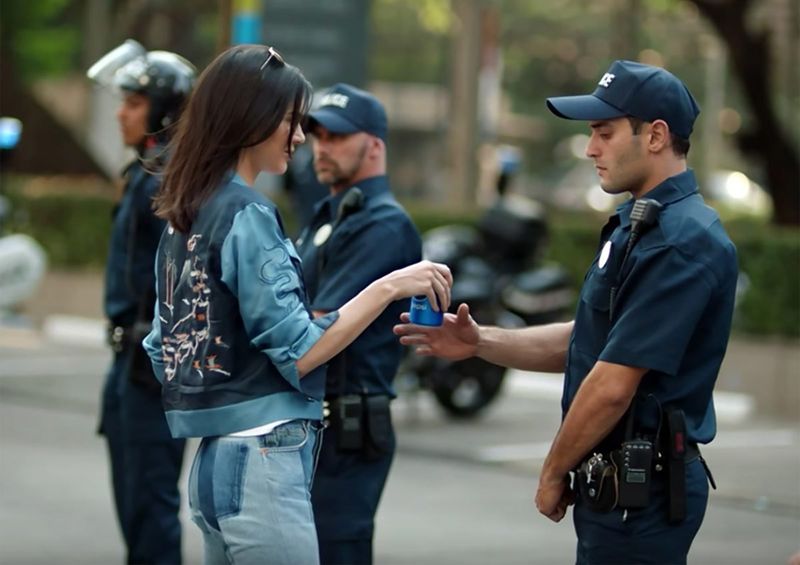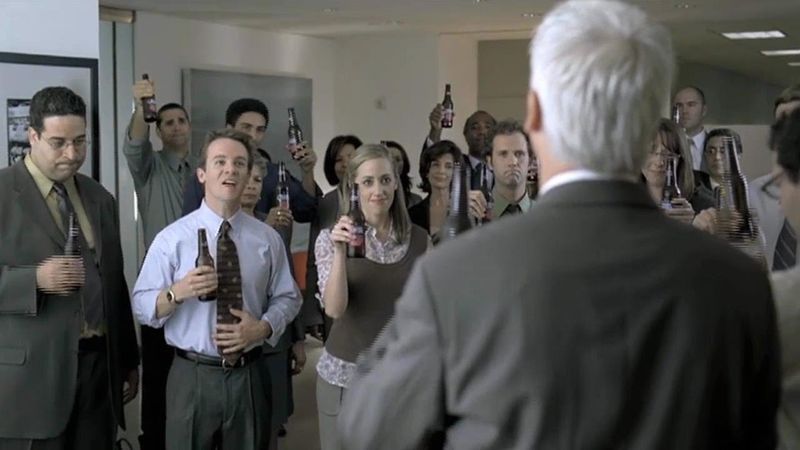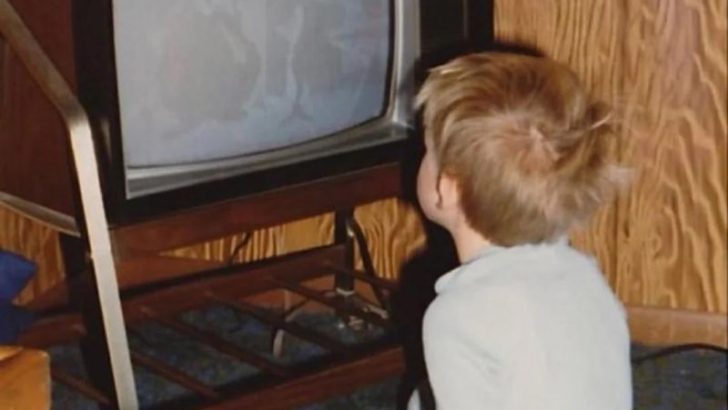Television commercials have long been a platform for creativity, humor, and sometimes controversy. Advertisers often push the boundaries to capture the audience’s attention, resulting in some memorable and hilarious moments. However, not all comedic attempts are met with universal approval.
Some commercials cross the line, sparking debates and ultimately facing the ban hammer for being too controversial. In this blog post, we explore seven such commercials that, despite being funny, were deemed too contentious for broadcast. From playful innuendos to bold social commentaries, these ads touched on sensitive topics or provoked strong reactions, leading to their eventual ban. Read on to discover the stories behind these infamous ads!
1. Pepsi’s Soccer Riot

Pepsi aired a commercial set in a rowdy soccer stadium. The scene erupted into a riot due to a lack of cold beverages. Spectators, ages 20 to 40, hurled Pepsi cans, creating chaos and humor. The ad portrayed a chain reaction sparked by the shortage. Initially, it seemed like lighthearted fun, but the depiction of violence in sports settings didn’t sit well with audiences. Critics argued it trivialized real-life hooliganism. Despite its comedic undertone, the ad was pulled for promoting unruly behavior. The controversy highlighted the thin line between humor and insensitivity, especially in sports-related content.
2. Bud Light’s Swear Jar

Bud Light’s ‘Swear Jar’ commercial featured office workers contributing money to a jar each time they swore. The incentive? A promise to use the funds for a Bud Light purchase. The comedic setup highlighted workplace frustrations. However, the casual use of profanity led to backlash. Critics felt it might encourage inappropriate language in professional environments. Employees, ages 25 to 50, were portrayed as eager participants, adding a humorous twist. Despite its humor, the ad was banned for potentially normalizing swearing at work. This case underscores the challenges advertisers face when balancing humor with professionalism.
3. GoDaddy’s Nerd Kiss

GoDaddy’s Super Bowl ad showcased a nerdy young man kissing a glamorous model. The unexpected pairing was meant to humorously highlight GoDaddy’s tech-savvy services. The contrast between the nerd and the model drew mixed reactions. While some viewers found it amusing, others saw it as perpetuating stereotypes. The intense close-up kiss left audiences divided. Critics argued it was inappropriate for family viewing. Despite the ban, the ad gained notoriety for its bold approach to humor. This example illustrates how shock value can quickly turn into controversy, especially during widely viewed events like the Super Bowl.
4. IKEA’s Disobedient Dog

IKEA’s ad featured a playful dog wreaking havoc in a beautifully staged home. The mischievous pet, around two years old, was seen jumping on furniture, creating a humorous yet chaotic scene. The commercial aimed to show the durability and adaptability of IKEA products. However, it sparked debate over encouraging pet misbehavior. Animal rights advocates expressed concern for portraying pets in a negative light. Despite its comedic intent, the ad was pulled. This incident highlights the sensitivity surrounding animal portrayal in media, emphasizing the importance of considering diverse perspectives in advertising.
5. Carl’s Jr. All-Natural Burger

Carl’s Jr. aired an ad featuring a young woman enjoying a burger on a sunny beach. The commercial emphasized the all-natural ingredients. However, the provocative imagery and focus on the woman’s physique drew criticism. Viewers were divided over its sexual undertones, which overshadowed the product message. Onlookers, visibly surprised, added to the humor but sparked debates on objectification. Despite the backlash, the ad drew attention to the brand, albeit for controversial reasons. This case demonstrates the risks of using sexuality as a marketing tool, particularly in food advertising, where the line between appeal and offense is thin.
6. Toyota’s Grim Reaper

Toyota’s ad featured the Grim Reaper humorously driving around a suburb in a Toyota. The narrative aimed to showcase the car’s reliability and safety. However, the portrayal of the Grim Reaper alarmed some viewers, who found it unsettling. The diverse family, ranging from ages 5 to 60, reacted with exaggerated shock, adding humor. Critics argued it trivialized serious themes like death. Despite its comedic twist, the ad was banned. This serves as a reminder of the cultural sensitivity required in advertising, where humor involving taboo topics can easily cross into controversy.
7. Hyundai’s Painfully Funny

Hyundai’s ad depicted a man attempting to end his life in a humorous twist. Set in a rainy cityscape, the man, in his 30s, finds unexpected humor when he discovers the car’s safety features thwart his plan. The ad intended to highlight the car’s innovative technology. However, the sensitive topic of suicide led to widespread backlash. Critics argued it trivialized mental health struggles. Despite its comedic angle, the ad was swiftly banned. This incident underscores the delicate nature of certain themes in advertising, where humor can easily be misconstrued, leading to unintended consequences.

Well, hello there!
My name is Jennifer. Besides being an orthodontist, I am a mother to 3 playful boys. In this motherhood journey, I can say I will never know everything. That’s why I always strive to read a lot, and that’s why I started writing about all the smithereens I came across so that you can have everything in one place! Enjoy and stay positive; you’ve got this!

